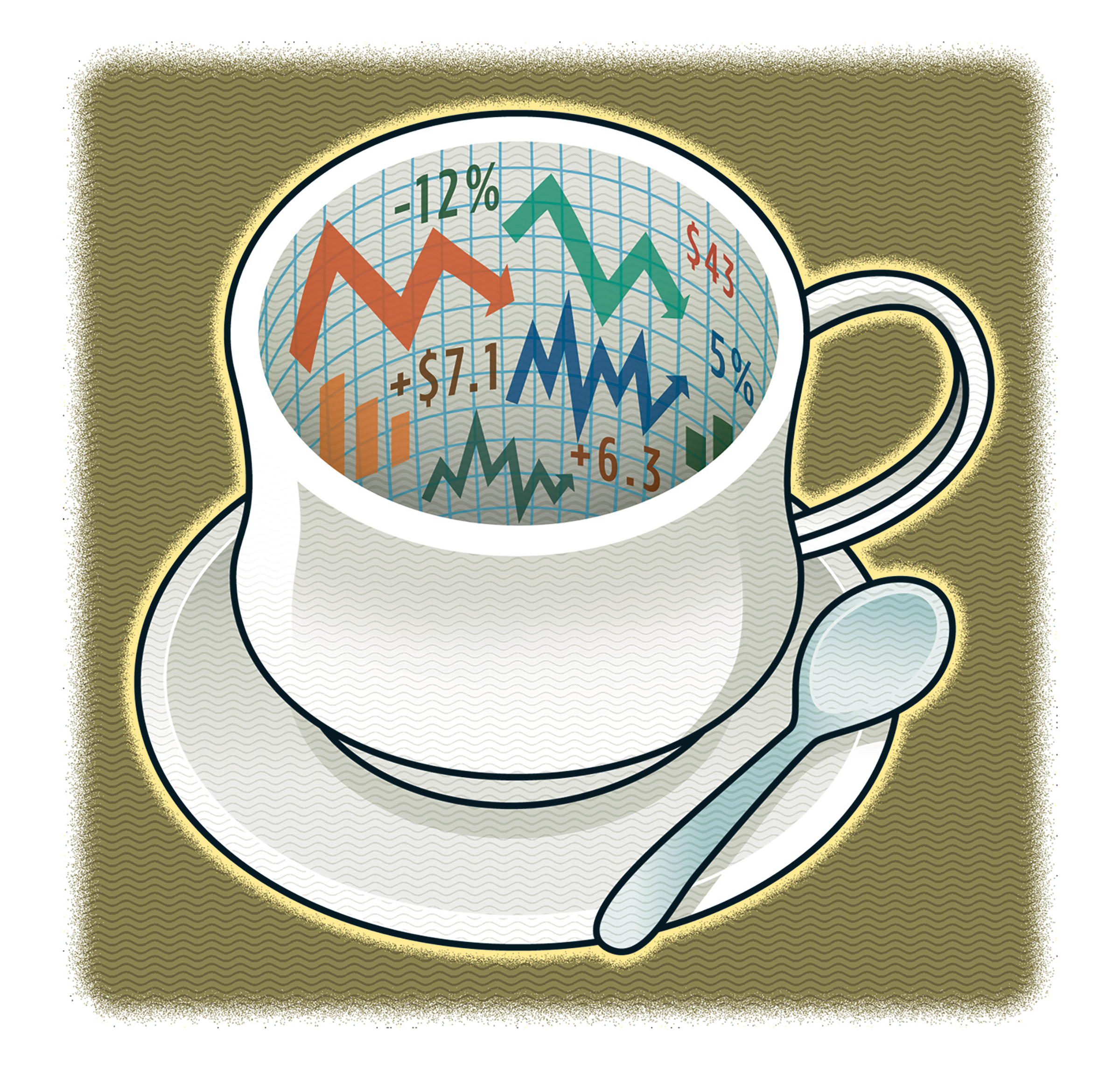
Every three months, publicly traded companies report both their actual financial earnings and their expected prospects over the near future. Investors closely watch these reports for signs of promise or trouble, in a ritual not unlike reading tea leaves. But with the COVID-19 crisis upending business plans left and right, interpreting those leaves is more challenging than ever.
Looking at first-quarter earnings reports from the nearly 90% of S&P 500 companies that have reported them so far reveals signs of trouble, but not cataclysmic shock: revenue rose an aggregate 0.6%, while net income fell 14%, according to FactSet. But COVID-19 shutdowns only began in late March, meaning their economic effects won’t truly show up until the next earnings season. Right now, far more telling is the fact that only 1 in 5 S&P 500 companies is offering future guidance, while 86 have withdrawn previously issued annual guidance.
“There’s an unprecedented degree of uncertainty,” says Marvin Loh, global macrostrategist at investment firm State Street. “One of the things we’re learning is that the companies themselves just don’t know.” In January, he predicted corporate earnings would fall 6% this year. Now, Loh predicts a 21% drop. Still, he’s optimistic a rebound will eventually come. “It’s just the timing is being pushed back,” he says.
For investors, the challenge is twofold: predicting when that rebound will come, and picking which stocks will win and which will lose when it does. Absent corporate guidance, that’s harder than usual–and it’s usually very hard. But a clearer picture is starting to emerge. Since the S&P 500 peaked three months ago, tech giants like Amazon and Netflix have fared well, as have drugmakers like Gilead. Energy companies like Halliburton have been hit hard, along with banks like Wells Fargo. Retailers like Nordstrom and Victoria’s Secret parent company L Brands have suffered as shoppers stay home, but those catering to home-bodies, like Domino’s and Kroger, are thriving.
Loh and others expect those trends to continue. How long they do may come down to two big questions. First, even as states begin lifting their lockdowns, will consumers feel it’s safe enough to go out to shop and eat? “We have to see some kind of stabilization of the pandemic first,” says Sahak Manuelian, head of equity trading at Wedbush Securities. Secondly, with millions out of work and the future so hazy, will people actually want to spend money? Unemployment figures and near real-time data from restaurant booking services like OpenTable could provide some answers.
Investors should heed another risk too: a wave of corporate insolvencies among companies without the resources to weather this storm. J.Crew, JCPenney and Neiman Marcus have already filed for bankruptcy, while Hertz and a slew of beleaguered oil companies could be next. That’s bad news for those companies’ shareholders, but it’s also a threat to wider economic growth–as companies go bankrupt, it can jeopardize the banks stuck holding their bad loans. That the federal government has been helping some struggling companies is propping up markets–for now. “It’s hard for equities to keep going down when there’s so much relief money sloshing around,” says Manuelian. How long that lasts is anybody’s guess.
What should investors look for in the coming months? Many of the companies that are performing well right now have strong balance sheets–that is, they’re strong in assets and not over-burdened with debt. “Looking at the balance sheet is first and foremost,” says Loh, “and then move on to growth prospects.” After years of easy, set-it-and-forget-it stock gains, it looks like fundamental analysis is set to make a big comeback. “A basic question is whether you feel comfortable that a company is going to be in business in the next couple of years,” says Loh.
More Must-Reads from TIME
- Donald Trump Is TIME's 2024 Person of the Year
- Why We Chose Trump as Person of the Year
- Is Intermittent Fasting Good or Bad for You?
- The 100 Must-Read Books of 2024
- The 20 Best Christmas TV Episodes
- Column: If Optimism Feels Ridiculous Now, Try Hope
- The Future of Climate Action Is Trade Policy
- Merle Bombardieri Is Helping People Make the Baby Decision
Contact us at letters@time.com